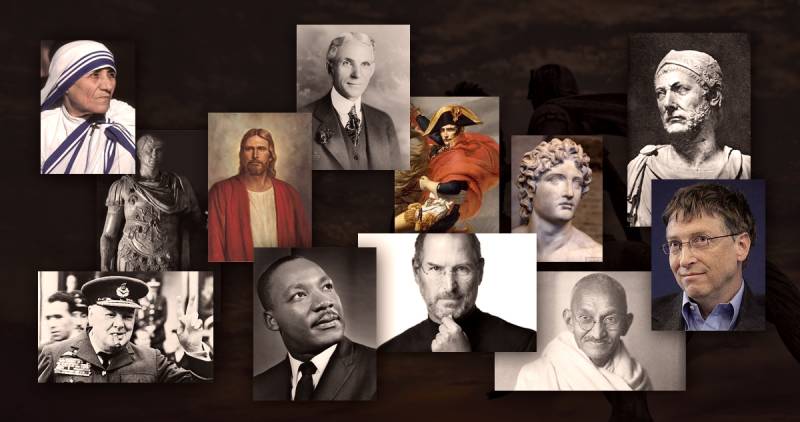
A student shares his reflections after reading a new book on leadership and what it entails.
The New Psychology of Leadership by Alexander Haslam examines the psychology and social elements of leadership. It joins theory with research-based evidence and certifiable analysis to present a holistic view of successful leadership.
The issue of taking a look at leaders alone leaves out two significant questions: The followers, to a great extent have been kept separate from leadership's literature and, the connection among followers and leaders
For leaders to be practical, they should adjust their objectives to the character of "US" which is the group. Lots of research has been done on extraordinary leaders discovering what precisely these "great man" qualities are.
In any case, the results have been baffling.
Even on account of the best indicator of leadership's quality, which was intelligence, it just anticipated a mere 5% of the variation. The long hunt for the secrets to leadership has been exceptionally unsuccessful. Also, the time has come to quit concentrating on the individual and begin taking a good look at the social dynamics instead.
The New Psychology of Leadership is founded on certain measures. It advocates moving past the consideration of the "great man" to an increasingly comprehensive view which includes followers. The leadership must be context-sensitive: the ability to lead relies upon context and people and it must be perspective-sensitive: if the gathering is sufficiently huge (i.e., a nation’s chief), the leader won't appeal to everybody similarly.
The new Psychology of Leadership doesn't deny leadership characteristics: it basically places them in context inside a progressively all-encompassing methodology and it demands empirical legitimacy. It's the ideal of leadership they center around. The leadership they talk about is not quite the same as simple management or authority.
Genuine leadership wins the hearts of individuals, assembling effort that depends on enthusiasm and pure passion. Martin Luther King's "I have a dream" moves the listeners to grasp what it genuinely meant to be an American.
The authors present four significant "Rules of Leadership". Leaders must be:
An example of a Leader who got the vision right yet failed the "test" is George Walker Bush. He arrived at the carrier wearing a flying suit, looking like a real warrior. He pronounced "Mission Accomplished" and his ratings were out of this world. As the lies of the war were exposed, Bush at the end lost credibility as a leader and quite a bit of his power of mobilizing the majority.
The New Psychology of Leadership (2006) has helped me understand the concept better. I strongly recommend the book to all those interested in subjects of leadership, power, and social psychology.
The New Psychology of Leadership by Alexander Haslam examines the psychology and social elements of leadership. It joins theory with research-based evidence and certifiable analysis to present a holistic view of successful leadership.
The issue of taking a look at leaders alone leaves out two significant questions: The followers, to a great extent have been kept separate from leadership's literature and, the connection among followers and leaders
For leaders to be practical, they should adjust their objectives to the character of "US" which is the group. Lots of research has been done on extraordinary leaders discovering what precisely these "great man" qualities are.
In any case, the results have been baffling.
Even on account of the best indicator of leadership's quality, which was intelligence, it just anticipated a mere 5% of the variation. The long hunt for the secrets to leadership has been exceptionally unsuccessful. Also, the time has come to quit concentrating on the individual and begin taking a good look at the social dynamics instead.
The New Psychology of Leadership is founded on certain measures. It advocates moving past the consideration of the "great man" to an increasingly comprehensive view which includes followers. The leadership must be context-sensitive: the ability to lead relies upon context and people and it must be perspective-sensitive: if the gathering is sufficiently huge (i.e., a nation’s chief), the leader won't appeal to everybody similarly.
The new Psychology of Leadership doesn't deny leadership characteristics: it basically places them in context inside a progressively all-encompassing methodology and it demands empirical legitimacy. It's the ideal of leadership they center around. The leadership they talk about is not quite the same as simple management or authority.
Genuine leadership wins the hearts of individuals, assembling effort that depends on enthusiasm and pure passion. Martin Luther King's "I have a dream" moves the listeners to grasp what it genuinely meant to be an American.
The authors present four significant "Rules of Leadership". Leaders must be:
- One of Us: must be seen like they have a place with the group of people they lead
- Champions: their activities must be viewed as taken for the group’s wellbeing
- Architects of character: likewise called "embedders of the real world", it refers to changing plans into reality.
- Vision just conveys us up until this point and in the long run, leaders must show the group that they can matter, influence the world, and achieve the changes they look for.
An example of a Leader who got the vision right yet failed the "test" is George Walker Bush. He arrived at the carrier wearing a flying suit, looking like a real warrior. He pronounced "Mission Accomplished" and his ratings were out of this world. As the lies of the war were exposed, Bush at the end lost credibility as a leader and quite a bit of his power of mobilizing the majority.
The New Psychology of Leadership (2006) has helped me understand the concept better. I strongly recommend the book to all those interested in subjects of leadership, power, and social psychology.
